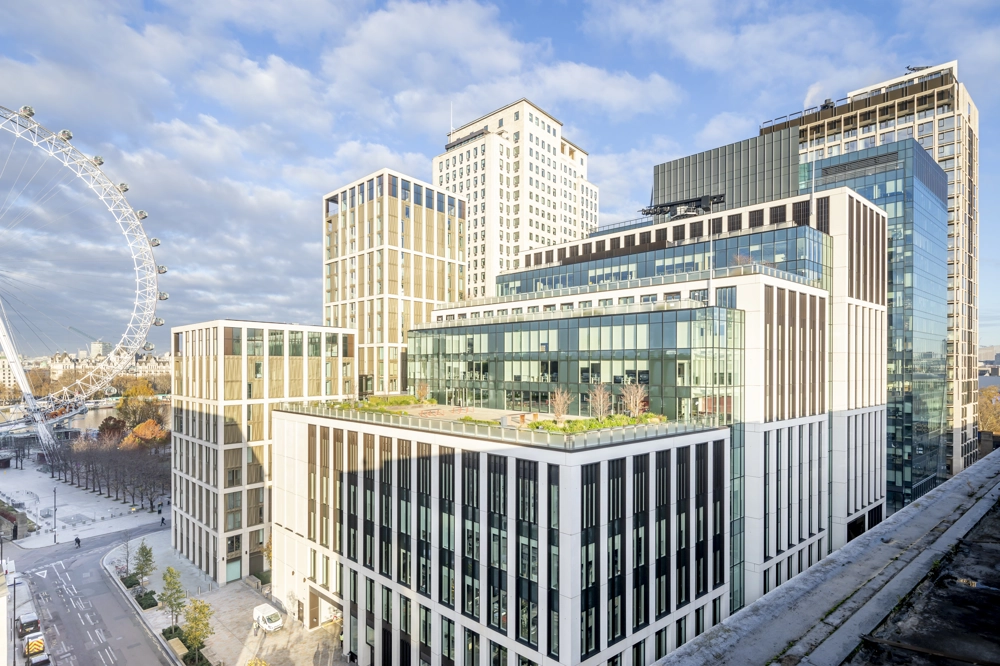The UK has seen growing health inequalities between rich and poor.
Those living in the most deprived neighbourhoods and certain ethnic groups often get multiple long-term health conditions 10 to 15 years earlier than those from wealthiest areas.
These illnesses are related to lifestyle factors including smoking and diet, access to services, social deprivation, employment opportunities and levels of education. While progress has been made in tackling some of these issues by, for example, driving down smoking rates and tackling obesity, the benefits have not been felt equally.
The decade of austerity before the pandemic saw health disparities increase and this has been amplified by the effects of Covid-19. As a major employer and builder of UK infrastructure and housing we know we have a responsibility to close the health equality gap, which is caused by the conditions in which people live and work.
“The private sector has an important part to play in promoting equity in health.”
Group CEO - Director of the Institute of Health Equity at University College London
Businesses can tackle health disparities
Because of the important role that businesses play in the lives of individuals and communities. This is not only good for people but also for businesses themselves. It’s estimated, for example, that 30% of the shortfall in productivity in the Northern Powerhouse is down to ill health.
Legal & General is working to promote health equity through initiatives such as our partnership with internationally renowned epidemiologist Sir Michael Marmot. Sir Michael is at the forefront of the campaign to improve living conditions globally, as Director of the Institute of Health Equity at University College London.
Together we produced a report called The Business of Health Equity: The Marmot review for industry, which reflects our view that employers, together with government and civil society, can have a significant impact on health equality. The report pointed out that after 2010, improvements in the UK’s life expectancy stalled, health disparities increased, and life expectancy declined for people in the most deprived 10% of neighbourhoods outside of London.
Business can make a difference by introducing good employment practices, through their goods and investments, and through the impact they have on communities and the environment.
The report urges the addition of ‘H’ for Health into the business acronym ESG (Environmental, Social, and Governance). It points out that another benefit for the businesses in focusing on all of these issues in the ability to attract the best employees as social purpose begins to play a greater part on the decisions about where to work for the best recruits.

Taking action towards equality objectives
In 2022, Sir Michael and North of Tyne Combined Authority’s Metro Mayor Jamie Driscoll led a roundtable, supported by our Chief Executive Sir Nigel Wilson to discuss how the public sector and business can reduce health inequality. It brought together local leaders to discuss the progress the region has made in reducing health inequality and to target further actions. These leaders included Dame Jackie Daniel (Chief Executive of Newcastle Hospitals, Dr Henry Kippin (CEO of North of Tyne Combined Authority) and leaders from the public and private sectors.
But even as such discussions are underway, many UK companies have already begun to take action to reduce health disparities. Larger employers, in particular, provide resources and services to improve health. These include exercise facilities, healthy meals, or counselling for mental health issues. Other companies are concerned to improve the health impact of their products, perhaps by ensuring that food is nutritious, or housing is good quality.
In our own operations, for example, we are addressing health outcomes for the hidden workforce of cleaning, security and maintenance staff. We have introduced sick pay policies, death in service benefits and access to virtual healthcare services across our real estate portfolio for these essential staff. We are urging others in the real estate sector to do the same and we are engaging with our suppliers to close the health and wellbeing gap for these hidden workers.

Improving adult social care
Health outcomes also depend on the conditions in which people age. With more than a million people aged 85 and over in the UK and predictions that it will reach 2.7 million by 2039, we are in a health and social care crisis.
As the owner and operator of Inspired villages, a network of retirement villages, it is a subject close to our hearts. This is why we provided £20m of funding to create the Advanced Care Research Centre (ACRC) at the University of Edinburgh. The ACRC brings together experts from a range of disciplines, from social care and technology to landscape architecture to find new solutions that will promote health equality in later life.
Our efforts are complemented by companies across the country that are using technology to improve social care. They range from wearable tech designed to enable healthcare in the home to apps that allow families to arrange and monitor social care. Care Sourcer, for example, is an online care marketplace that compares care homes and home-care services across the UK and connects the people looking for care with those who are providing it.
“Seven days waiting in hospital can cut a person’s muscle strength by 10%.”
CEO - Care Sourcer
Despite such innovations, our own research suggests a downward trend in access to healthcare and housing (a significant contributor to better health outcomes). Our Rebuilding Britain Index (RBI), which we launched to monitor progress towards levelling, surveys 20,000 people annually. It tracks social and economic progress across 52 measures, including Health, Social Care, Education, Housing, Jobs and Economic Property, Environment, Energy, Transport, and Digital.
The RBI has consistently found that improvements in jobs and the economy are not matched by better healthcare. Recently we’ve seen a fall in sentiment across the board for primary, secondary and tertiary care.
There is a desperate need to improve health equality in the UK. Despite efforts already being made by public bodies and companies many of the poorest people are still living lifestyles that lead to ill health, often through no fault of their own. We need to do more.




